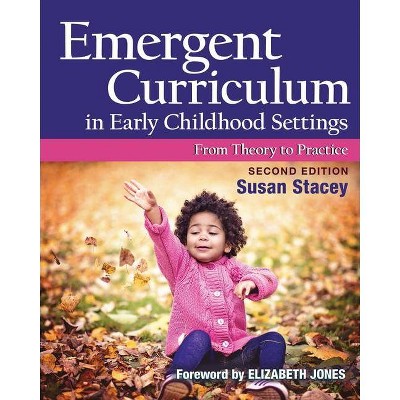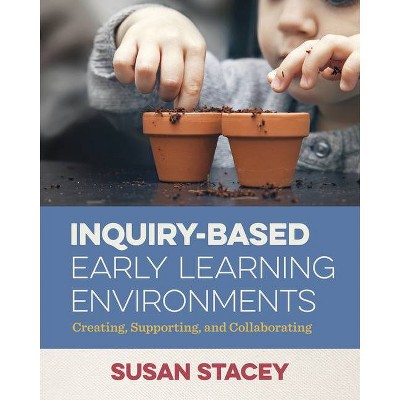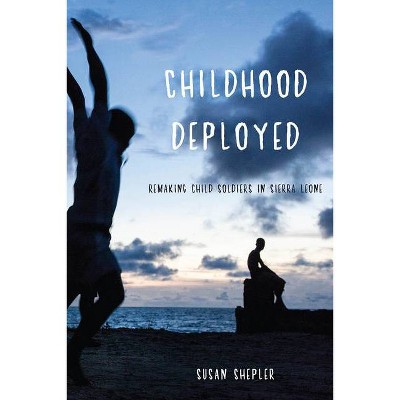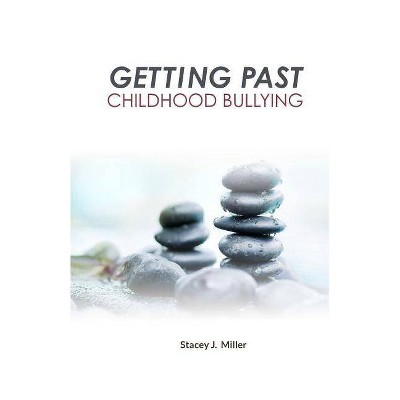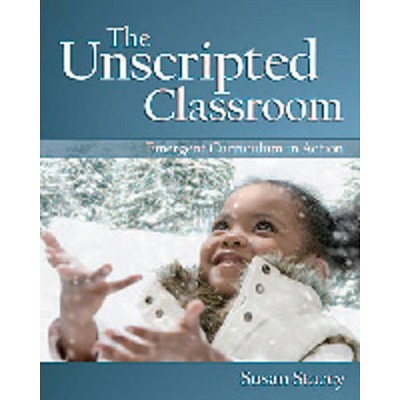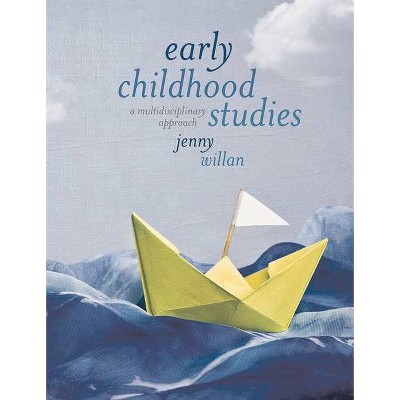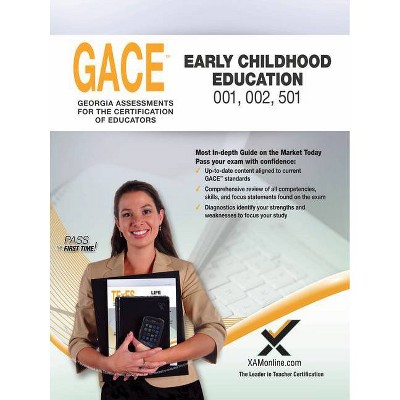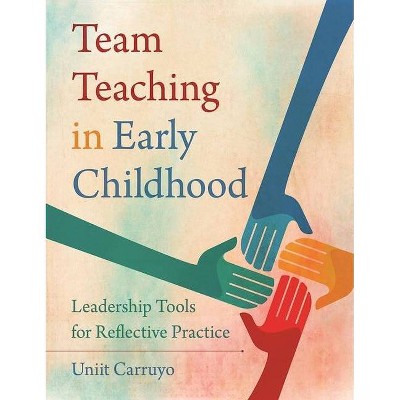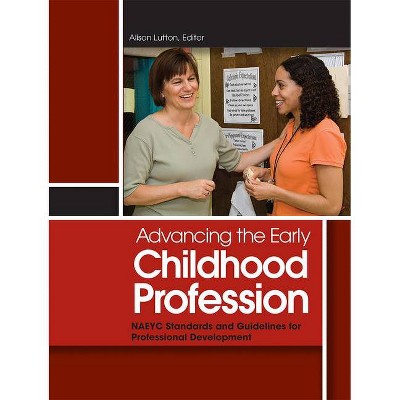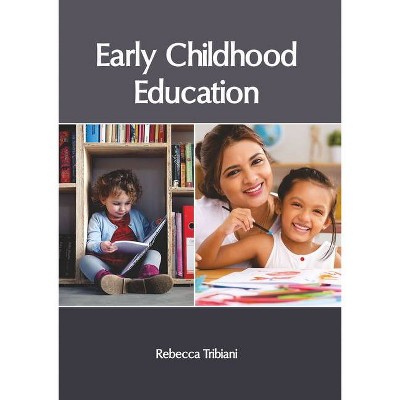Pedagogical Documentation in Early Childhood - by Susan Stacey (Paperback)
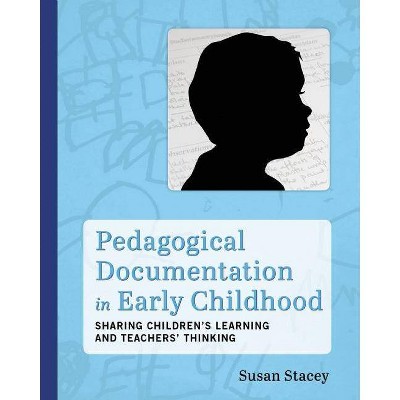
Similar Products
Products of same category from the store
AllProduct info
<p/><br></br><p><b> About the Book </b></p></br></br>An inspiring step-by-step guide to documenting children's ideas, questions, and learning in a way that enhances teacher's thinking and understanding<p/><br></br><p><b> Book Synopsis </b></p></br></br><p><i>Pedagogical Documentation in Early Childhood</i> is an inspiring step-by-step guide to documenting children's ideas, questions, play, and learning in a way that enhances teachers' thinking and understanding at the same time. This book supports teachers on their journey to tell the stories behind children's work and inquiry.</p><br><p/><br></br><p><b> Review Quotes </b></p></br></br><br><br>"Stacey reminds us that the value of documentation goes beyond an attractive display on the wall. She says, 'Documentation at its best leads to reflection and dialogue.' This book goes on to offer a number of valuable and practical examples of how to focus the work of pedagogical documentation. <p/>If we are to put the idea of teacher research into real life, pedagogical documentation is a cornerstone. Stacey's very practical book brings the practice to life."--Margie Carter, co-author of <em>Designs of Living and Learning</em> <p/>"Susan Stacey's new book takes the reader on a journey of the transformational possibilities of pedagogical documentation. Susan interweaves the theory and practice beautifully and the photographs of the projects and documentation give readers real-life examples to inspire their journey. It takes time, but <em>Pedagogical Documentation in Early Childhood</em> is an excellent first stop on your journey of transformation."--Dr. Diane Kashin, RECE, Professor, Ryerson University <p/>How do we know if they're learning? How do we know if we're teaching? By documenting what happens and reflecting on it together.<br>What's documentation? It's saving and sharing our stories to create mutual learning experiences for teachers and children and parents - in the author's words, bringing families and other interested readers into the complex circle of thinking that is teaching. And the children join the construction team as they think further about their experience in response to genuine questions.<br>Want to learn how it's done? Open this book and begin your discovery of everything you ever wanted to know about authentic assessment.--Elizabeth Jones Faculty emerita, Pacific Oaks College, Author, <em>Emergent Curriculum</em>; <em>The Play's the Thing</em> <p/>Three cheers to Susan for writing this book! Its timing is perfect - teachers are more ready than ever to use pedagogical documentation effectively to make children's thinking and work visible. Susan offers exciting, practical suggestions for using familiar and new technological tools to create documentation that communicates with families and children. <br>Susan reminds us that documentation is more useful than as a display of interesting events in a classroom. With pedagogical documentation a teacher pays close attention to children's thinking during the process of inquiry into a topic. A teacher listens and responds as children question, explore, interact, pose theories, and investigate.<br>Susan shows us how documentation is an act of reciprocity wherein a teacher offers her response to children's work through photos, narration, and speculation. Documentation is collaboration--when shared with a child it too becomes an object of study. Documentation is pedagogical practice that helps teachers reach beyond their certainties to consider what may be possible. We are sensitized to what is our edge and are helped to vision what may be. <br>Pedagogical documentation honors and respects children's thinking and capacities.--Gretchen Reynolds, Early Childhood Education, Algonquin College <p/><em>Pedagogical Documentation in Early Childhood</em> defines the process of pedagogical documentation and asks what a classroom experience says about a child's ideas and learning process, providing keys to creating the kinds of documentation that help foster and explain children's explorations. References and research blends with an overview that teaches how documentation is applied, analyzed, and how it contributes to both a child's experience and family and educator discussions. Photos and diagrams accompany text instructions to provide specific insights on such documentation, offering early childhood educators all the tools to put such documentation into play and make it work for everyone, making for a top pick for any early childhood reference library.--California Bookwatch, The Education Shelf: September 2015 <p/><br><p/><br></br><p><b> About the Author </b></p></br></br>Susan Stacey: Susan Stacy has worked in the early childhood education field for over 35 years as an early childhood educator, director, practicum advisor, and instructor in both Canada and the US. She is a frequent speaker across North America, focusing on topics related to emergent curriculum, reflective and responsive practices, inquiry, documentation, and the role of the arts in early education. She also teaches adult students at the Nova Scotia College of Early Childhood Education, and she belongs to several organizations such as the National Association for the Education of Young Children (NAEYC) and the Canadian Childcare Federation. She presents at NAEYC conferences and has been published in <i>Young Children, Young Exceptional Children</i>, and <i>Exchange</i>. Susan holds a master's degree from Pacific Oaks College in Pasadena, CA. <p/> <p/>
Price History
Cheapest price in the interval: 23.99 on October 22, 2021
Most expensive price in the interval: 23.99 on November 8, 2021
Price Archive shows prices from various stores, lets you see history and find the cheapest. There is no actual sale on the website. For all support, inquiry and suggestion messages communication@pricearchive.us
